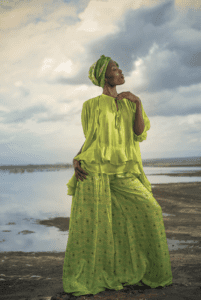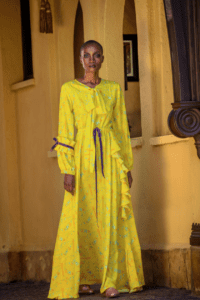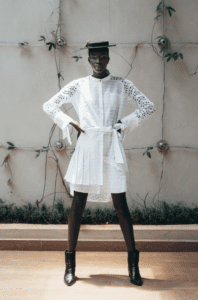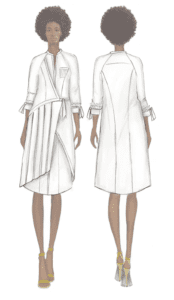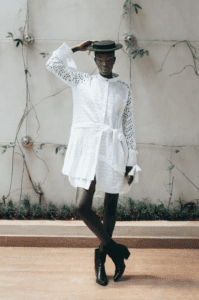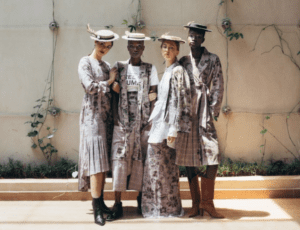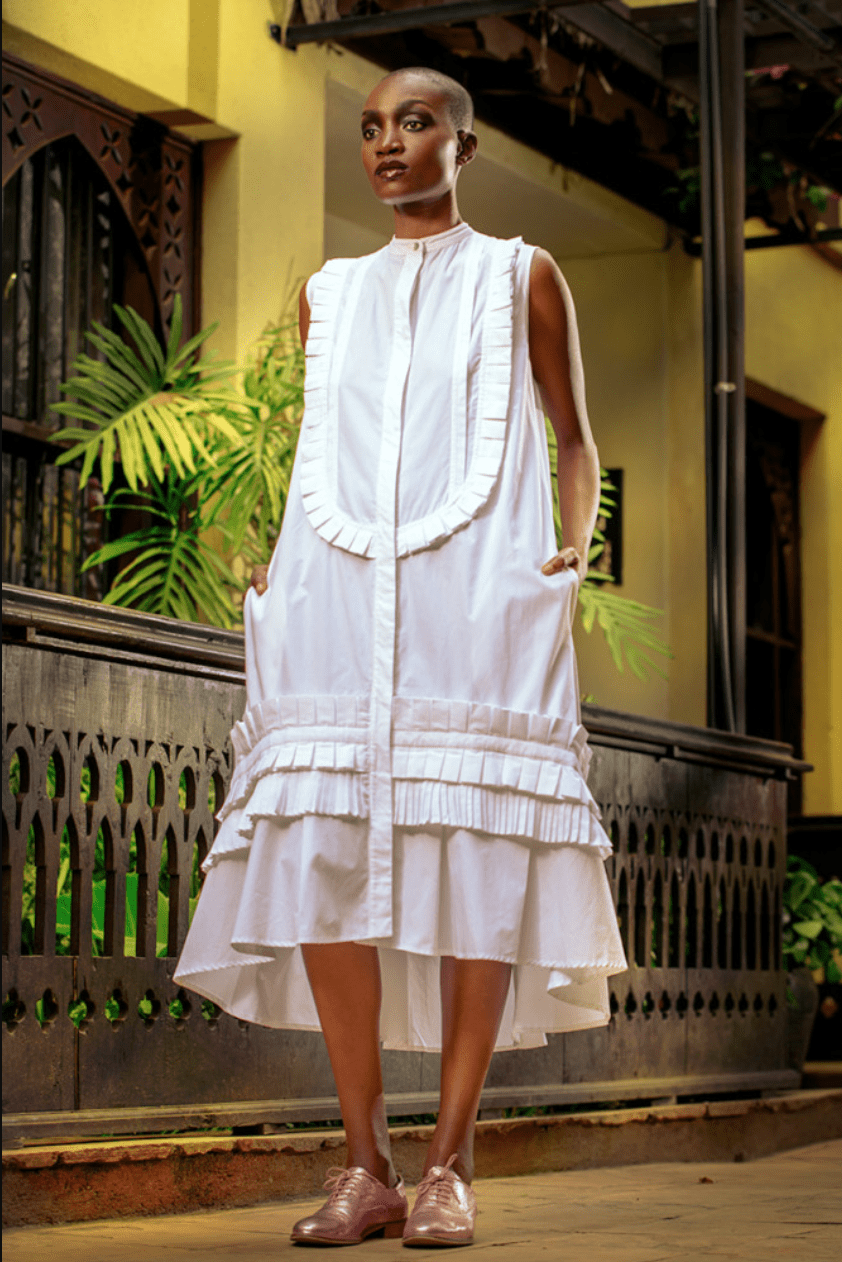
Inclusivity and Sustainability with Anyango Mpinga
Anyango Mpinga is proof that creative, avante-garde fashion and goals like sustainability and size-inclusivity are not mutually exclusive. Mpinga is a Kenyan designer who created her eponymous label in 2015. It is now celebrated for its “reimagined white shirts” and “bold prints,” as well as its balance between “androgyny and a bohemian aesthetic. She designs with an ethereal quality that is reminiscent of the romantic Victorian age while maintaining a sophisticated boyish edge”
Mpinga had spent most of her life tweaking clothes she bought to better fit her body, and eventually she decided it was time to take matters into her own hands. Like many women, Mpinga says her body changes throughout each month, and the way her clothes fit constantly changes as a result. The clothes the designer bought and the industry standard of “straight sizing” did not take these changes into account. Mpinga’s personal experience, and the fact that “the average woman experiences 31 size changes during her adult life, the average man 24,” according to Vogue, shows that the fashion industry needs to change the way it approaches sizing.
And it has started to.Brands like American size-inclusive Universal Standard (00-40) are responding to demand for more adaptable clothes by engineering their pieces with curved hems, thicker fabric, and stretch that doesn’t look stretched when your body gets larger. These preemptive adjustments show women who wear plus-sizes that designers want their bodies in their clothing.
Adaptability and sustainability are directly related: Mpinga’s design philosophy focuses on circular, rather than fast, fashion, and her adaptable designs are an important facet of that philosophy. The designer says of her size-inclusive practices, “I make shirts loose-fitting, with extra allowance around the hips; certain shirts unbutton at the sleeves or waist; a dress might include internal drawstrings.”
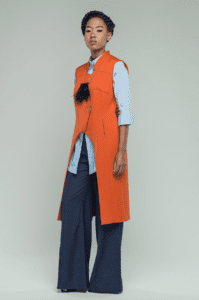 A person is more likely to hold onto a piece that they can easily alter as their body changes, so building in these modifications keeps size-adaptable pieces out of landfills longer than their fast-fashion alternatives. Mpinga is also exploring the use of biodegradable textiles and uses her initiative “Free as a Human” to tackle “the humanitarian and environmental crisis of the exploitative labor practices in the fashion industry.
A person is more likely to hold onto a piece that they can easily alter as their body changes, so building in these modifications keeps size-adaptable pieces out of landfills longer than their fast-fashion alternatives. Mpinga is also exploring the use of biodegradable textiles and uses her initiative “Free as a Human” to tackle “the humanitarian and environmental crisis of the exploitative labor practices in the fashion industry.
Images via Mpinga’s website (1) (2) (3) (4) (5) and Design Indaba



